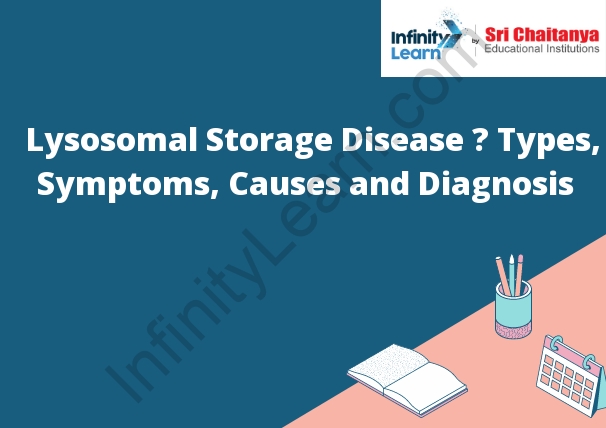Table of Contents
Lysosomal Disease
Lysosomal diseases are a group of rare genetic disorders caused by defects in lysosomal function. Lysosomes are organelles in cells that break down complex molecules into their component parts. Defects in lysosomal function can lead to the accumulation of toxic substances in cells, which can cause damage to tissues and organs. Symptoms of lysosomal diseases vary depending on the specific disorder, but can include developmental delays, intellectual disability, organ dysfunction, and death. There is no cure for lysosomal diseases, but treatments are available to manage symptoms.

Symptoms of the Lysosomal Storage Disease
There is no one-size-fits-all answer to this question, as the symptoms of lysosomal storage diseases can vary depending on the specific disorder. However, some of the most common symptoms of lysosomal storage diseases include problems with movement, speech, and swallowing; seizures; and progressive intellectual disability.
Lysosomal storage diseases are a group of rare inherited disorders that occur when enzymes that normally break down complex molecules in the body are missing or not working correctly. This results in the accumulation of harmful substances in cells. Symptoms of lysosomal storage diseases vary depending on the specific disease, but can include intellectual disability, developmental delays, movement disorders, blindness, deafness, and seizures. There is no cure for lysosomal storage diseases, but treatments are available to help manage symptoms.
Causes of Lysosomal Storage Diseases
Lysosomal storage diseases are a group of rare genetic disorders caused by defects in lysosomal function. Lysosomes are small organelles in cells that break down proteins, fats, and carbohydrates. When lysosomes do not function properly, these molecules accumulate in the cells and tissues, leading to the symptoms of lysosomal storage diseases.
The most common type of lysosomal storage disease is Gaucher disease, which is caused by a deficiency of the enzyme glucocerebrosidase. This enzyme is responsible for breaking down the sugar glucocerebroside. When it is deficient, glucocerebroside accumulates in the cells, leading to the symptoms of Gaucher disease.
Other lysosomal storage diseases include Tay-Sachs disease, which is caused by a deficiency of the enzyme hexosaminidase A, and Niemann-Pick disease, which is caused by a deficiency of the enzyme sphingomyelinase.
Diagnosis of Lysosomal Storage Diseases
Lysosomal storage diseases are a group of inherited disorders that affect the way the body breaks down food. These disorders are caused by defects in the lysosomes, which are tiny sacs in the cells that digest food.
Symptoms of lysosomal storage diseases vary depending on the specific disorder, but can include problems with movement, vision, hearing, and breathing. The diseases can also cause seizures, mental retardation, and death.
Lysosomal storage diseases are diagnosed through a combination of tests, including blood tests, urine tests, and genetic tests.
Lysosomal storage diseases are a group of rare genetic disorders that are caused by the inability of lysosomes to break down and recycle certain molecules. This results in the accumulation of these molecules in the lysosomes and other parts of the cell, which can lead to cell damage and death. There are many different types of lysosomal storage diseases, each caused by the inability to break down a different type of molecule. Some of the most common lysosomal storage diseases include Tay-Sachs disease, Gaucher disease, and Hurler syndrome.
The diagnosis of lysosomal storage diseases can be difficult, as many of the symptoms are similar to those of other diseases. However, there are a number of tests that can be used to help diagnose these disorders. One of the most common tests is the lysosomal enzyme assay, which measures the level of lysosomal enzymes in the blood or urine. This test can help to confirm the diagnosis of a lysosomal storage disease, as the level of enzymes will be abnormally high in patients with these disorders. Other tests that may be used include DNA sequencing and ultrastructural analysis of the cells.
There is no cure for lysosomal storage diseases, but there are a number of treatments that can help to improve the quality of life of patients. Treatment options vary depending on the specific disease, but may include medications, enzyme replacement therapy, and surgery. Early diagnosis is important in order to ensure that patients receive the best possible treatment.
Treatment of Lysosomal Storage Diseases
There is no one-size-fits-all treatment for lysosomal storage diseases. Treatment options are based on the specific disease and may include enzyme replacement therapy, medications, and surgery.
Lysosomal storage diseases (LSDs) are a group of rare inherited disorders that result from defects in lysosomal function. Lysosomes are organelles in cells that break down complex molecules, such as proteins and lipids, into their component parts. Defects in lysosomal function can lead to the accumulation of these complex molecules in the cells, a condition called lysosomal storage. LSDs can affect any organ or tissue in the body, but most often affect the brain, liver, and bone marrow.
The symptoms of LSDs vary depending on the specific disorder, but can include developmental delays, intellectual disability, movement disorders, seizures, liver dysfunction, and anemia. There is no cure for LSDs, but treatment is available to help manage the symptoms. Treatment options include enzyme replacement therapy, which involves giving patients injections of enzymes that help break down the complex molecules, and hematopoietic stem cell transplantation, which involves replacing the defective bone marrow with healthy donor cells.
LSDs are rare disorders, affecting only about 1 in every 50,000 people. However, they can be very debilitating, and it is important that people with LSDs receive timely and appropriate treatment.







